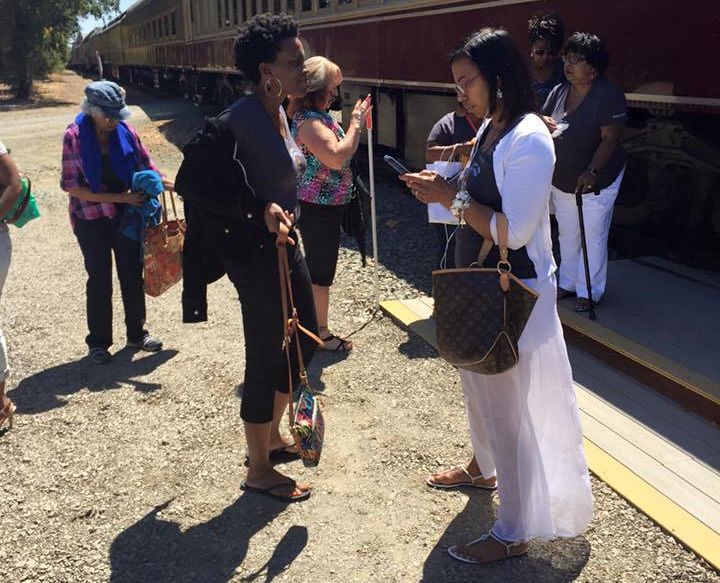The group's trip began in Napa but quickly soured, the lawsuit says, when a member of the train staff confronted them repeatedly and warned the women they were too loud. The complaint says that one white passenger told book group leader Lisa Renee Johnson, "This is not a bar." The group's trip ended prematurely in St. Helena, where the 11 women were marched past other passengers and handed over to police officers waiting at trackside.
The train company initially published a Facebook post accusing the group of "verbal and physical abuse toward other guests and staff." But the company removed the post as Johnson published her own accounts of the episode on Facebook and Twitter. The train's CEO subsequently apologized and declared the company had been "100 percent wrong" to kick Johnson and the others off the train.
Noting that the women witnessed "multiple groups of Caucasians who were inebriated and acting boisterous" who were not put off the train, the suit alleges the group's ejection is part of a broad pattern of discriminatory treatment:
Kicking the plaintiffs off the train gave white privilege to the passenger who verbally complained in the bar car. Clearly, this passenger did not want to share her space with these women and was treated more favorably by defendants’ decision to remove all eleven plaintiffs from the train. This action shows that African Americans are policed by other patrons and by management in restaurants, theaters, and public places. African American adults are more likely to be shushed, stared at, and kicked out of places where white people perceive that they do not fit.
Plaintiffs’ money was not as valuable to defendants as was the comfort of their Caucasian passengers. Defendants would rather kick plaintiffs off the train than keep their money on the train. Plaintiffs’ money was not treated with equal value.
The suit also says two members of the book club were dismissed from their jobs because of the wine train's Facebook post accusing the group of verbal and physical abuse.
Johnson said at a Thursday press conference announcing the lawsuit that getting kicked off the train "was the most humiliating experience that I have ever had in my entire life. This is 2015, and this just cannot happen again."
And from the Associated Press writeup on the lawsuit:
Katherine Neal, 85, the oldest woman in the group, said she was reminded of when she was about 12 and a store clerk asked her to eat her ice cream outside while white families ate inside.
"I took this case because it's an egregious case," said McCoy, the women's attorney. "This lawsuit highlights that blacks are still being treated differently in America."
